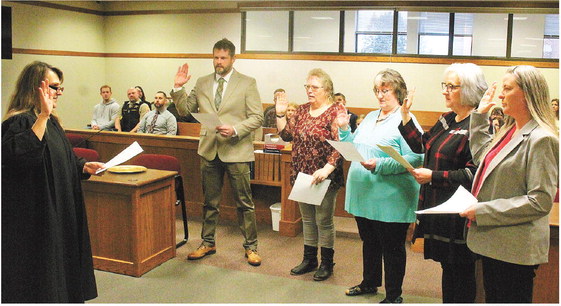Create a lasting legacy – September is Preparedness Month in Wis.
Disasters can happen anytime, anywhere. To encourage all Wisconsinites to be ready, Gov. Tony Evers has declared September Preparedness Month in Wisconsin. Throughout the month, ReadyWisconsin wants everyone to consider emergency risks and take steps to make sure individuals, families, and communities are safe before, during, and after a disaster.
“Preparing now can make a big difference before an emergency occurs,” said Wisconsin Emergency Management Administrator Greg Engle. “Taking proactive steps improves our ability to act, respond, and recover when disasters strike.”
Preparedness Month is recognized every September across the country as part of the Federal Emergency Management Agency’s Ready Campaign. This year’s theme is “A Lasting Legacy.” It focuses on protecting the life you have built and how being prepared for disasters can create a lasting legacy for you and your family.
“Being prepared is a step towards resiliency and it’s a shared responsibility,” said Engle. “Wisconsin Emergency Management wants a future where disasters and emergencies cause less disruption to people’s lives and less destruction. The goal of our ReadyWisconsin Campaign is to encourage people to invest in measures that reduce the potential risk to themselves and those around them.”
During the month of September, ReadyWisconsin encourages everyone to prepare by:
• Creating or updating your disaster plan. This should include what to do in the event an emergency or disaster forces you to remain at home for several days or you are forced to leave your home. Make sure the plan is practiced.
• Create a disaster kit that includes key supplies, such as water and non-perishable food, a first aid kit, and flashlights. Remember to think about medical needs and don’t forget to include supplies for your pets.
• Talk to children about what to do at home, school, daycare or when they are not at home. Make sure they know who to contact and identify a safe meeting place.
• Identify disasters that are likely to affect your community and the resources available to respond.
• Review your insurance policy to make sure you have adequate coverage for your home and other property. Remember that most policies do not cover flood damage, which will typically require its own policy.
• Get emergency notifications on your phone. When emergencies strike, public safety officials use timely and reliable systems to alert you. These include Wireless Emergency Alerts (WEAs) that can broadcast from cell towers to any WEA-enabled mobile device in a targeted area. Check with local emergency management on other emergency messaging systems available in your area.
• Take steps to prepare your home. This includes maintaining your property, such as trimming any branches, cleaning gutters, or securing shingles on your roof.
“We live in an unpredictable world when it comes to disasters and emergencies,” said Engle. “Planning for the unexpected may seem overwhelming at first, but having the peace of mind from knowing you are if something does happen can make all the difference for you and your loved ones.”



